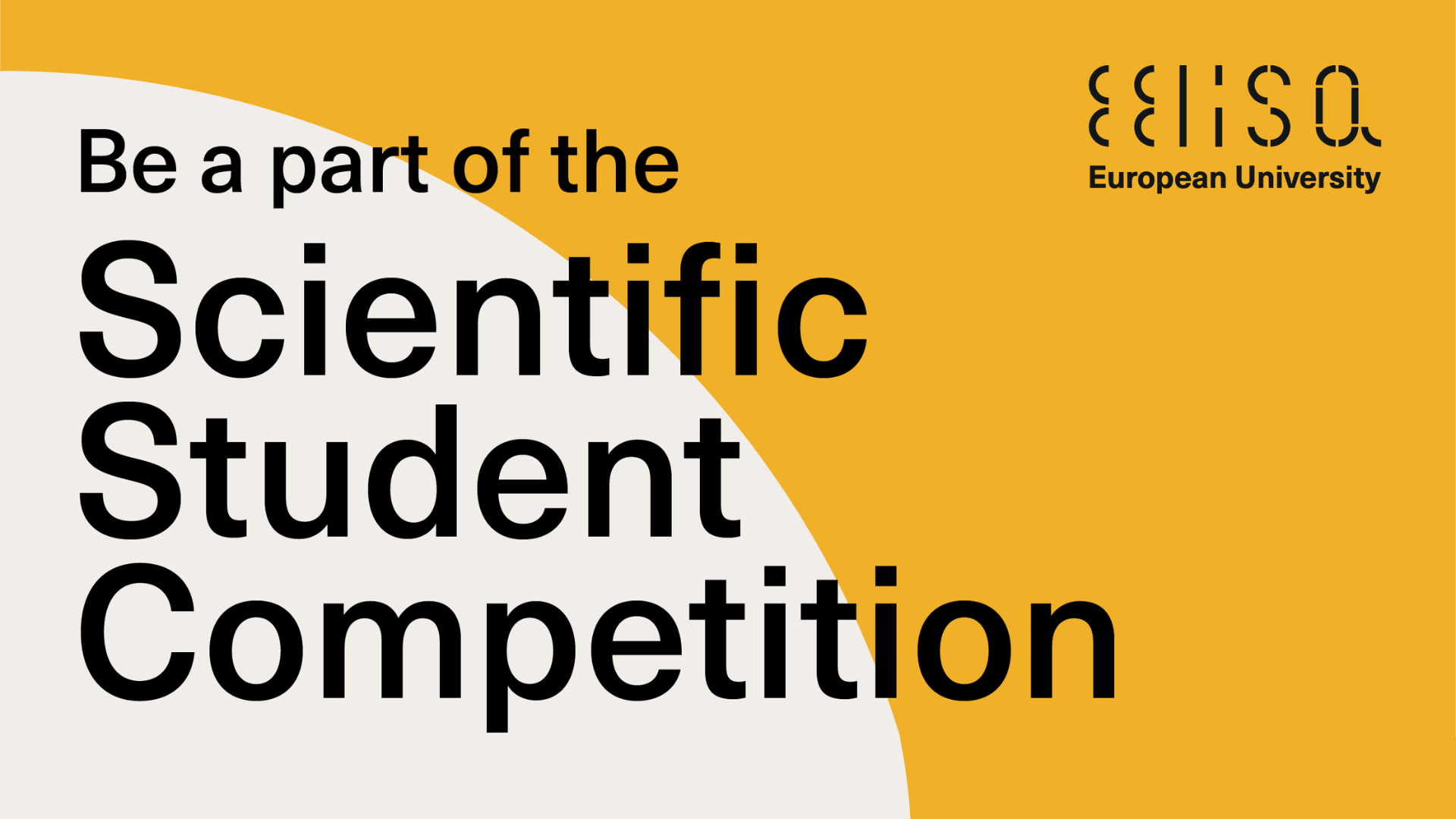
Join the Student Scientific Competition at the 2nd Research-based Learning Symposia in Pisa!
The Scientific Student Competition program is the most broadly based and comprehensive form of talent management: a platform for self-education and elite training to become a scientist. This form of competition has been taking place in Hungary for the past 70 years, and almost every top Hungarian researcher has been involved in it.
This unique competition will take place during the 2nd Research-based Learning Symposia. It aims to establish joint research interests and activities between EELISA partners and to serve as a platform to identify common research interests.
This event will take place on a hybrid format, allowing students to engage on-site as well as online. To join the meeting online, you can use the following links:
|
Sessions |
MS TEAMS | Location |
|
17th MAY 14:00 – 18:00
|
||
|
Social Sciences 1 |
Toscanelli Aula 1 |
|
|
Smart Materials and Production |
Toscanelli Aula 2 |
|
|
Informatics |
Sede Centrale Aula 3 |
|
|
Architecture |
Sede Centrale Aula 4 |
|
|
Medicine |
Sede Centrale Aula 5 |
|
|
18th MAY 14:00 – 17:00
|
||
|
Social Sciences 2 |
Aula Pasquali |
|
|
Applied Sciences |
Aula Volterra |
|
|
Chemical and Bioengineering |
Aula Fermi |
|
|
Built Environment |
Aula Barocchi |
|
|
Awarding Ceremony 19th MAY 11:15 – 12:00 |
||
You can check the full program in the link below
EELISA Student Scientific Competition Program
Take a look at the organisational and Scientific Committee
Scientific Committee
Anikó Grad-Gyenge (BME) Mária Csete (BME)
Adrián Horváth (BME) Mariana Mirela Stanescu (UPB)
Ágnes Urbin (BME) Máté Zöldy (BME)
Alexander Preis (FAU) Nirvana Popescu (UPB)
András Pataricza (BME) Patricia Isabela BRĂILEANU (UPB)
Asli Can Karaca (ITU) Ruxandra Ioniță (Lie) (UPB)
Beatrice Leustean (UPB) Sándor Kiss (BME)
Bushra Jalil (SSSA) Simona Bibic (UPB)
Daniele Giachini (SSSA) Tamás Iványi (BME)
Delia Prisecaru (UPB) Tamás Krámer (BME)
Emine Gorgul (ITU) Uğur Töreyin (ITU)
Gabriel Pinto (UPM) Valentina Casieri (SSSA)
Gianfranco Adornato (SNS) Veronica Iacovacci (SSSA)
György Hild (BME) Yonas Seifu Muanenda (SSSA)
Javier García Martín (UPM) Zsolt Lángi (BME)
Jonas Walter (FAU)
Juan Manuel Muñoz (UPM)
László Hegedűs (BME)
Lukas Gugel (FAU)
Organizing Committee
Dr. András Pataricza (BME) Rossella Raso (SSSA)
Dr. Balázs Kövesdi (BME) Daryia Krasilnikov (SNS)
Cecília Liszkay (BME) M. Akif Yazici (ITU)
What are the benefits of participating?
– Writing a research paper like those in the Scientific Student Associations movement.
– The opportunity to dig deeper into a particular field of study and closely examine interesting professional questions.
– Working with a supervisor to build professional relations and learn from experts in particular fields. The paper may form the basis for a larger project, such as a thesis.
– Successful performance during the competition can provide new opportunities for students beneficial for their academic or professional careers.
– After graduation, successful participation is considered positive both by academic and industrial bodies when applying for a job, MSc, or Ph.D. program.
– Participation helps develop soft skills such as academic writing and presentation.
– Success at the faculty level, especially at the national-level competition, may bring a great degree of moral and professional satisfaction.
How to participate?
Students must submit 20 to 60-page-long research reports prepared with the help of experienced supervisors. This paper must be submitted a month before the symposia.
Afterwards, they will give a 10 minute long presentation at the conference in sessions according to their field of profession, followed by a scientific discussion. This presentation will be evaluated under the main rules of the Hungarian TDK and OTDK conferences.
Each research report will be checked and evaluated by two reviewers before the event. Students will get their reviews one week before the presentation, so they can prepare their answers and correct the results and research findings upon necessity.
What are the rules for the competition
Rules of the EELISA Scientific Student Competition
Here you may find some examples
– EELISA Research Report Example 1
– EELISA Research Report Example 2
– EELISA Research Report Example 3
– EELISA Research Report Example 4
REGISTRATION DEADLINE
20th of March, 2023
DEADLINE FOR RESEARCH REPORT SUBMISSION
17th of April, 2023
WHEN
From the 17th to the 19th of May, 2023
WHERE
Special session at 2nd EELISA RBL Symposia – Pisa, Italy
